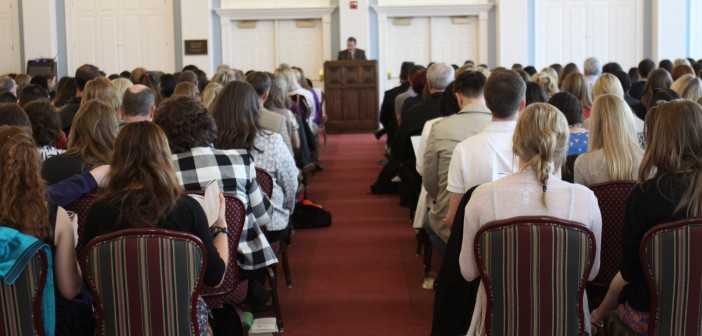Mobility has been an historic characteristic of people in the United States. Mobility, opportunity and adventure have tended to go together. There was the massive move west as settlers turned the country into a primarily rural nation by the early twentieth century. Then mobility, particularly after World War II, populated the cities and then the suburbs, where most of the population lives today. But the high mobility of the past has overshadowed a more current trend.
“Why do so many people stay where they live, and what are the main reasons they do so?” The answers may offer clues for church leaders.
Richard Florida, a senior editor at The Atlantic and a demographic theorist, is one of several observers who have noted the declining trend in the percentage of persons moving each year. In “Why People Stay Where They Are,” Florida notes that the 11.7 percent who moved from one residence to another last year is close to the lowest since such records have been kept.
While naming some of the reasons given for slowed mobility, Florida moves on to address the question, “Why do so many people stay where they live, and what are the main reasons they do so?” The answers may offer clues for church leaders.
Those most likely to stay in place are groups well represented among church members and attenders today: older people, homeowners, suburbanites, and rural residents. Those most likely to move tend to be less present in churches: the young, the poor, and city dwellers.
However, research referenced by Florida finds that job opportunities and affordable housing may not be the drivers for moving that some assume. In fact, many people stay in communities with limited economic advancement and limited housing options. That is not to say that job availability and the desire for better housing do not drive those who move. We know they do. But remember the focus here is not so much on why the few people move but why the larger number of people stay.
Those who stay seem to be motivated by less tangible factors. Family, relationships, and the quality of their communities rank high. Research by both Pew and Gallup has identified the importance of social ties, especially family, and the quality of life in their communities as critical for stayers. People who stay feel they belong. The quality of public schools and the physical beauty of the neighborhoods are important to them.
Some possible implications for churches come to mind.
Well-being of the Community
There is no way to separate church vitality from community well-being. The futures of churches and communities go hand in hand. Many churches assume this is not the case. Even as their surrounding communities deteriorate, these churches feel that they will be an exception to the decline. Some believe that the congregation is distinctive enough that the larger social conditions will not matter. Rarely is this what happens. Instead, by the time churches discover the relationship between community improvement and their own health, circumstances within the community are beyond any impact the church might have. If churches understand themselves as part of the community from the beginning and see their missions connected to their communities and its institutions, it is far more likely that both will prosper as places where people can thrive and grow.
Importance of Relationships
While the researchers cited are focusing on why people choose to stay in one place rather than move, it is likely that some of these same factors influence why people choose to stay in one church rather than move to another or to no church. The quality of the relationships people have seems to be the critical factor for people wanting to stay where they are. Finding increasing ways to enhance and deepen the quality and breadth of relationships within congregations should be an ongoing priority for churches. This is particularly true as the frequency of worship attendance has declined for more than a decade. If people are together for worship less frequently, the presence of other relationship building and sustaining opportunities becomes even more critical.
Don’t Take Stayers For Granted
Elsewhere, Richard Florida has described three types of people related to their likelihood of moving: the mobile, the stuck, and the rooted. The rooted are those who have the ability and means to move but choose to stay. Think about those in your church who could easily attend another church but year after year choose to stay in your church. These are your most reliable members, but they also are the most likely to be taken for granted and sometimes even neglected. What gestures are there to show appreciation for their presence comparable to those extended to guests? How are the most dependable of members recognized or at least thanked during the year for all that they do?
Related Resources:
- The Emergence of “Dones” by Lovett H. Weems, Jr.







